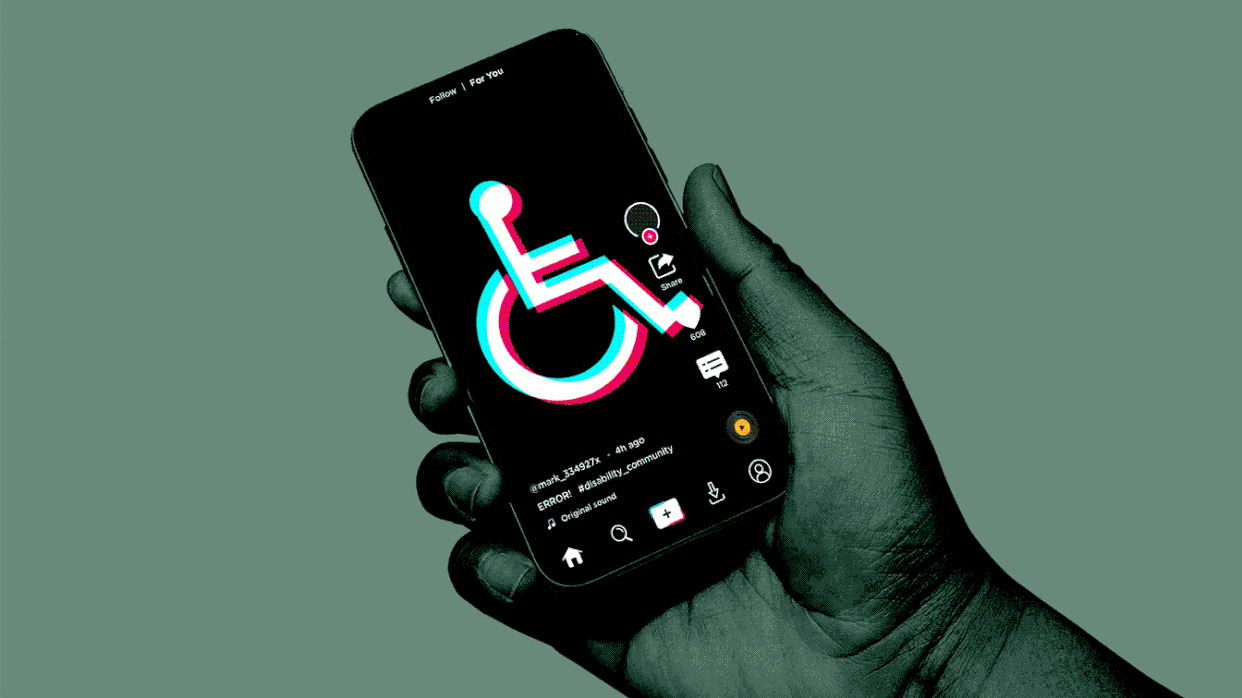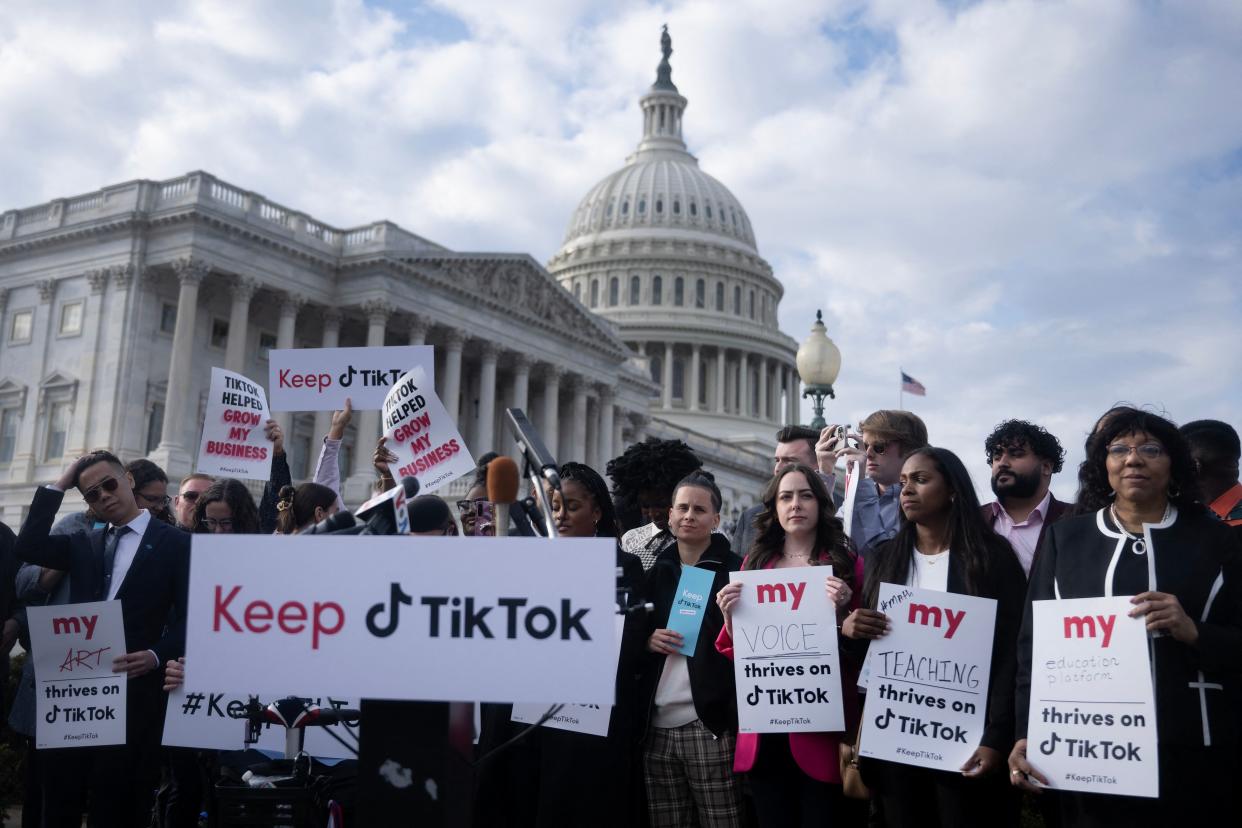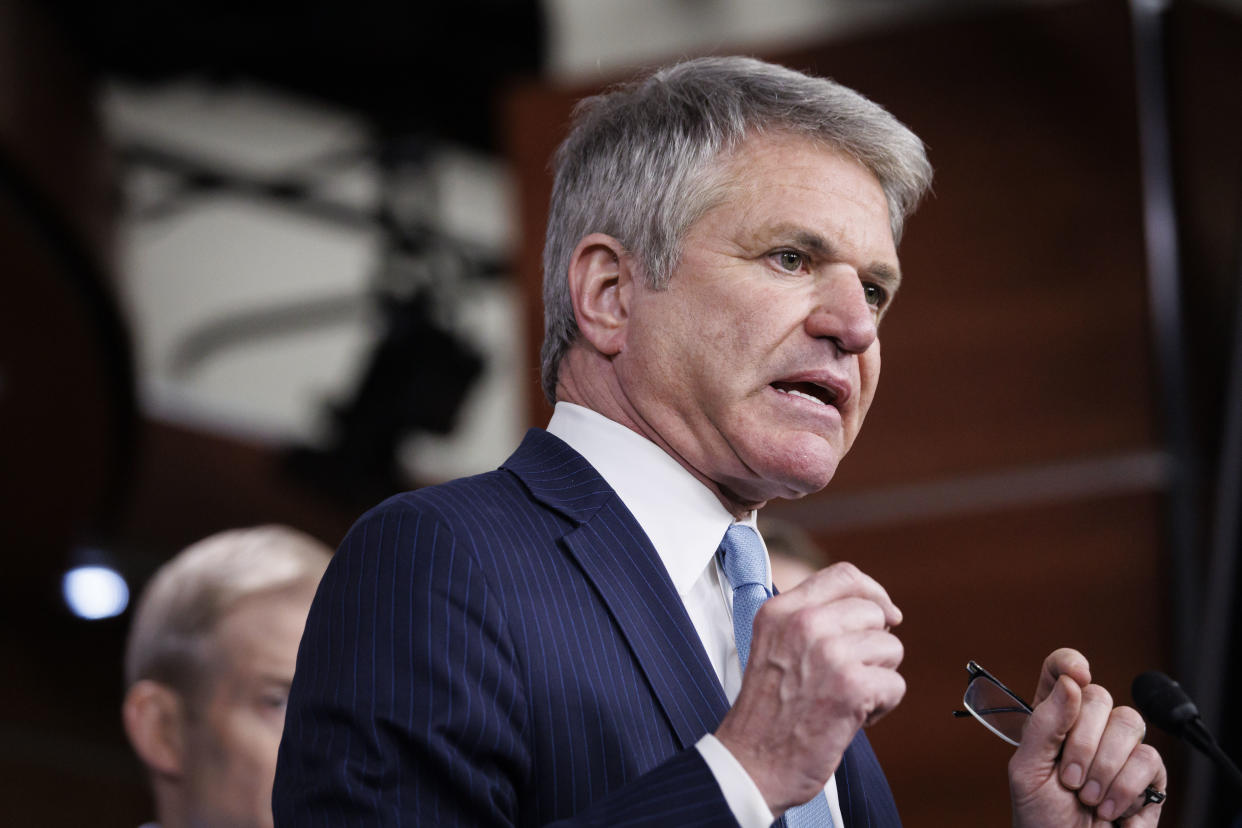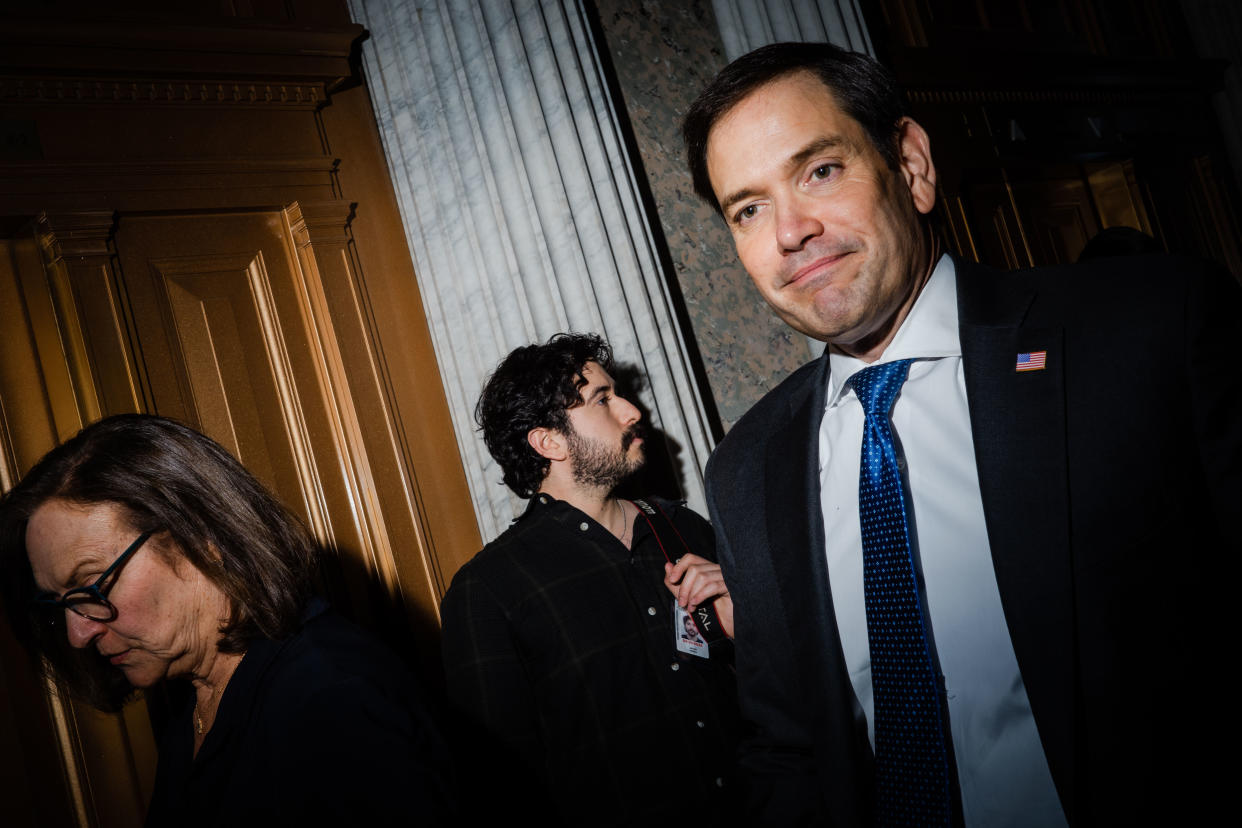People with disabilities have built a community on TikTok. They fear its loss if the app is banned.

In December 2020, Katriel Nopoulos was feeling bored. Like most people, Nopoulos had endured the initial COVID-19 pandemic lockdown at home, in isolation. Curious to know what “Gen Z was doing” on the growing social media platform TikTok, Nopoulos signed up for the app.
Nopoulos, who uses they/them pronouns, soon discovered that TikTok could be a life-changing tool. Nopolous was born without a lower jaw, so they communicate by using American Sign Language. TikTok allows creators to easily deploy a computer-generated voice to read text out loud. This is both an accessibility issue — so that the blind and visually impaired can absorb their content — and a liberating innovation for Nopoulos.
For the first time in their life, Nopoulos could be heard — literally.
“Suddenly I had a platform that was accessible to me, and I could say what I had been thinking for a long time but couldn’t get out,” Nopoulos told Yahoo News.
They ran with it, creating videos demanding equality for the disabled and for the LGBTQ community. Nopoulos educated their audience on what they perceive as widely ignored forms of ableism, such as the fact that people with disabilities face a loss of Supplemental Security Income (SSI) benefits if they marry.
Nopoulos quickly started to gain followers, and now they have over 118,000. Their posts attract thousands of likes and hundreds of comments from people with disabilities commiserating and sharing tips for navigating the world.
Nopoulos is hardly alone. TikTok is home to a robust community of disabled content creators with large followings.
“I’ve been doing this work for 14 years, but people didn't pay attention until I started showing up on TikTok,” Tiffany Yu, who just turned 35 and has been doing advocacy for disability rights since she started a student group called Diversability when she was a senior at Georgetown University, told Yahoo News.
Even some widely followed TikTok users who do not have a disability say they have learned about the experience of living with a disability from the app. Unlike Instagram, Twitter and Facebook, where the stream of content largely depends on selecting which accounts to follow, TikTok users get an endless stream of videos recommended to them based on a complex web of interactions. If you watch, like or share a disability-related video, TikTok will deliver more of them.

“Through TikTok, I have been made more aware of the plight of the disabled, because the FYP, the for-you page algorithm, puts more people that I wouldn't necessarily follow or search for — on YouTube, Twitter, Instagram — are put into your feed more often, so I've learned more about what it's like to be disabled in America and the pitfalls of having to deal with the Social Security administration, their pay scale, things like that,” Alex Pearlman, a politically progressive TikToker with 1.4 million followers, told Yahoo News.
But now Nopoulos, Yu and other TikTok creators with disabilities worry that their platform may be taken away, as Congress considers banning the app from the U.S. on the grounds that the TikTok’s China-based parent company, ByteDance, would inevitably allow the Chinese government to access data about U.S. users. Some cybersecurity experts are more wary of TikTok than other social media platforms, since the Chinese-owned app features a powerful algorithm that aggressively tracks its users’ engagement on videos. The same quality also makes TikTok so attention-grabbing for millions of Americans.
The Biden administration has reportedly told TikTok it must be sold to a non-Chinese company or face being banned.
“As a disabled person, it is so sad that ... [a] place where we have built community might be going away,” said Britt Belwine, a 26-year-old law student who has two mobility-impairing chronic illnesses, in a recently posted TikTok. Belwine is followed by more than 87,000 accounts.

“Virtual community has been so important to disabled organizing and to the disabled community,” Belwine told Yahoo News. “Even long before the pandemic, so many of us have been housebound before, have had mobility limitations. ... Having these virtual spaces where we can meet each other has been essential for providing quality of life, but also providing a place for us to fight together and to collectively use our voices to advocate for our rights.”
TikTok accounts such as Belwine’s are not just a place to vent, bond and educate. They are also used to mobilize collective action. Nopoulos exhorts their followers to lobby their congressional representatives to pass the SSI Restoration Act, which would address some of their complaints about the program. And one elderly disabled veteran who goes by the handle @patriotickenny has successfully raised money from his 2.6 million followers to buy a mobility scooter for another disabled vet who needed one.

They have also led disability rights activists to network and work together offline. Yu, who became disabled at the age of 9 after her left arm was paralyzed in a car accident, has expanded Diversability beyond campus to a national organization promoting disability pride. Diversability has brought several speakers to recent events who they found on TikTok.
Building those connections may soon face serious obstacles, as the anti-TikTok movement has been gathering momentum. President Biden signed a law last December banning the app from federal government computers, mobile phones and other devices. And in March, Republicans on the House Foreign Affairs Committee passed a bill sponsored by Chair Rep. Michael McCaul, R-Texas, that would give the president the authority to ban foreign-owned apps from the country while placing sanctions on companies tied to Chinese-owned apps.

“Online communities can play an important role in people’s lives, but [Chinese Communist Party]-controlled TikTok poses a unique threat to America,” Sen. Marco Rubio, R-Fla., told Yahoo News in a statement emailed by his office. “Data being used to spy on journalists. Manipulated algorithms intended to impact our elections. The list goes on, which is why we must pass the bicameral, bipartisan ANTI-SOCIAL CCP Act.”
Rubio and Sen. Angus King, I-Maine, introduced a bill that would block social media companies from China, Russia, Cuba, Iran, North Korea and Venezuela.
TikTok insists that there is no nefarious plot to obtain U.S. data.
“TikTok has never shared, or received a request to share, U.S. user data with the Chinese government. Nor would TikTok honor such a request if one were ever made," TikTok CEO Shou Zi Chew said in congressional testimony later that month. The company has recently developed a plan to store U.S. user data on U.S.-based servers controlled by the software company Oracle.
But China hawks are unmollified, believing that such promises will be meaningless if the company is pressured by the Chinese government to turn over the data or to use the app as a vector for state propaganda.

In mid-April, 14 Republican members of the House of Representatives and three GOP senators sent a letter to the rules committees in both houses of Congress asking that all members of the House and Senate should be banned from having TikTok accounts even on private devices.
A number of states have also banned TikTok from government devices and the Montana Legislature recently became the first to pass a law banning the app from the state on personal devices. There are questions about the constitutionality of such a measure, which some say would violate the First Amendment and the practicality of how it would be enforced. Many TikTokers argue that banning the app is selective and arbitrary, when Facebook and Twitter have been used by the Russian government as part of its effort to influence U.S. elections, and they say the U.S. should instead establish stronger industrywide data privacy laws similar to those in the European Union.
TikTok’s popularity is not limited to the disabled community. Whether someone is interested in reality TV, the war in Ukraine, cats, politics (conservative or liberal), cooking or some other combination of passions, the app will serve up the appropriate videos.
For marginalized communities such as LGBTQ youth, this has provided a sense of belonging. The Washington Post declared in 2020 that the app is “the soul of the LGBTQ Internet.”

TikTok has deliberately encouraged the creation of such communities. In 2021, TikTok launched the #DisabilityPride tag to find and share content about disabilities, and it currently has 1.1 billion views on the app.
“TikTok is enjoyed by more than 150 million Americans, including members of the disability community, who enjoy the platform to express themselves, tell their stories, and find common understanding,” a TikTok spokesperson told Yahoo News by email. “We’ve taken unprecedented steps to protect this experience for our users and address national security concerns by securing U.S. user data and systems on U.S. soil.”
Although many people with disabilities were already limited in their physical mobility, the COVID-19 pandemic has made that especially true, as many people with disabilities are immunocompromised. It’s not a coincidence that many of the TikTok accounts that became so popular, such as Yu’s and Nopoulos’s, were started in 2020.
Many people with elevated risk from COVID say they feel abandoned as society returns to its pre-pandemic norms. Belwine, for example, has recently posted about how her law school won’t allow her to attend classes remotely and the vast majority of her classmates have ignored her request, sent via class email lists, that they wear masks for her protection. If TikTok were shut down, disabled TikTokers say, where would anyone even be able to hear that perspective?

Some supporters of these measures suggest that other social media apps can fill the same niche as TikTok, but many disabled TikTokers disagree because those platforms aren’t powered by algorithms that build the same types of connections as easily. Yu and Nopoulos both post actively on Instagram and have had accounts there for longer, but have accrued only about a 10th as many followers as they have on TikTok.
And Twitter has alienated many disabled users since Elon Musk bought the company and laid off the entire team working on accessibility and the content moderation team, leading, they say, to a rise in hate speech directed at outspoken people with disabilities.
“It's not for a lack of trying,” Yu said, of her smaller following on other apps. “TikTok is centered on discovery, while the others are centered on opt-in.”
“For me it is not transferable to Instagram, because there’s no text-to-speech feature there,” Nopoulos said. “So, basically, if TikTok goes, I go.”
